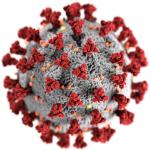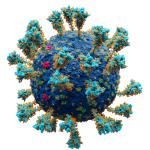Order matters. Consider grocery shopping on today’s tighter budget. If you start with snacks, those early choices set the tone.
SARS-CoV-2
While Americans increasingly shed masks, forgo COVID-19 boosters, and embrace post-pandemic normalcy, a viral specter is spreading across Asia — and it’s beginning to show up in the U.S.
The calamitous global outbreak of COVID-19 has sparked intense scrutiny of its origins.
Join Cameron English, Dr. Chuck Dinerstein and Dr. Barbara Billauer on Episode 96 of the Science Dispatch podcast as they discuss:
The notion of human medical experimentation elicits visceral repulsion.
Join Cameron English and Dr. Chuck Dinerstein on Episode 91 of the Science Dispatch podcast as they discuss:
There have been more than 111 million cases of COVID-19 in the United States, which caused about 1.2 million deaths, a calamitous public health episode by any measure.
We began by exploring the difference between eradicating and controlling viruses.
From the onset of the COVID-19 pandemic, researchers have been engaged in forecasting the potential economic and human costs associated with an uncontrolled large-scale pandemic, as well as the corresponding benefits that could be derived from an












